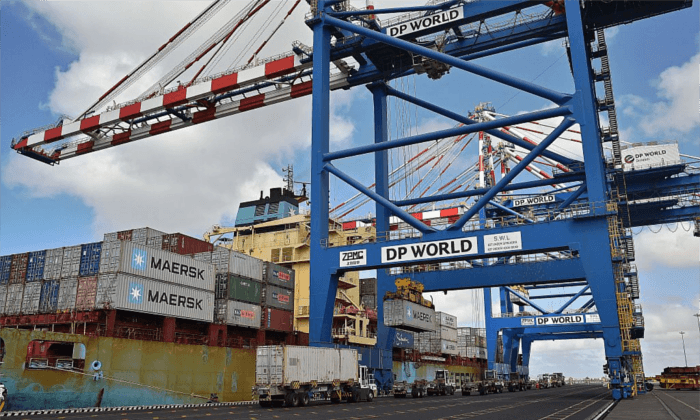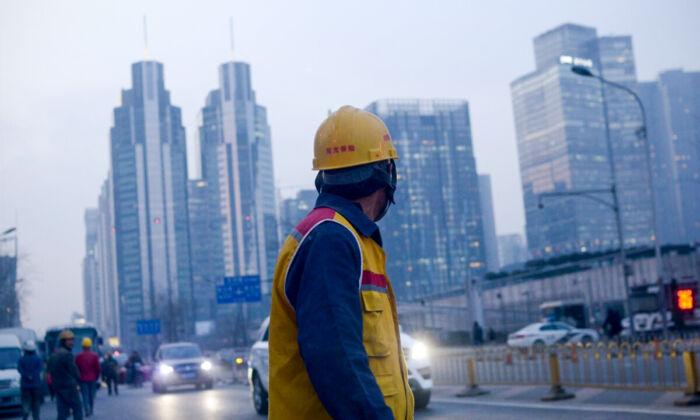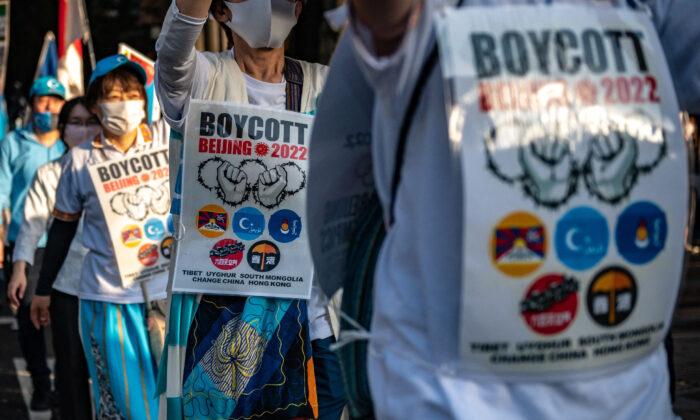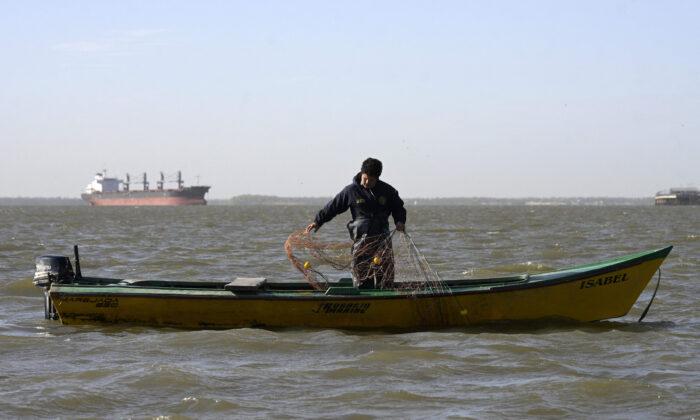China’s “One Belt One Road” (OBOR) initiative is drawing concern and criticism due to its negative impact on various nations and companies. The project has caused many recipient countries to be heavily indebted to Beijing, and has allowed the Chinese regime to export their authoritarian model of governing through surveillance equipment.
The OBOR (also known as Belt and Road) initiative is an aggressive plan of building infrastructure throughout many Asian countries, into Africa, and the European Union. It establishes similar projects in Latin American countries, and has also began eyeing the Asia-Pacific region.
Chinese companies and banks have established ways to gain sovereignty in nations through building and lending projects.
The chairman of a global port operator accused Chinese companies of predatory business practices in an interview with
CNBC. Sultan Ahmed bin Sulayem, chairman of DP World, spoke about the how he viewed Chinese company’s actions in foreign countries.
“They have taken predatory practices in something that (is termed) today to be a debt trap, whereby they overextend their debts to countries and eventually take their assets,” Bin Sulayem told CNBC.
DP World, based in Dubai, United Arab Emirates, is one of the largest port operators in the world. It filed a lawsuit against China Merchants Port Holdings in the High Court of Hong Kong for unlawfully procuring land and inducing Djibouti to break deals with DP World, according to CNBC.
Besides legal means, countries have expressed opposition in other ways. The Trump administration has begun
rolling out counter initiatives to offer infrastructure projects to the countries that China targets through OBOR.
Countries Indebted: Debt Trap Diplomacy
China uses OBOR large infrastructure projects to pour billions of dollars into emerging economies. At the same time, many of the financing is done through Chinese lenders, bringing
danger to a nation’s sovereignty. China often uses equity from the country as a form of repayment.
Jeff Smith, an expert on South Asia at
The Heritage Foundation, said that countries including Djibouti, Kyrgyzstan, Laos, the Maldives, Mongolia, Montenegro, and Pakistan are in serious debt trouble with China, according to a
report by The Epoch Times. Many of these countries’ national output is not enough to repay the high debt burden from China’s infrastructure projects.
One of the most recent imperiled countries is
Kenya. If loans used to build a railway system in Kenya are not repaid, then China will not just control, but have full sovereign rights to the Port of Mombasa—the largest sea port in East Africa.
The Chinese Communist Party (CCP) has already expanded a
military base into Djibouti, a small African country bordering the Red Sea, according to satellite images publish on Sept. 10, 2018. Two
U.S. senators expressed concern on Nov. 13, 2018, about the political and military consequences of China taking control of a port in Djibouti, as it will increase China’s influence in East Africa.
Sri Lankans
protested on September 2018 over their government’s inability to repay debts and handing over a major port to the Chinese regime. In December 2017, the Sri Lanka government leased the major Hambantota Port to Beijing for 99 years in a plan to convert its owed loans of $1.4 billion into equity. This move allows the CCP to gain control in the Indian Ocean.
Beijing also took part in the Asia-Pacific Economic Cooperation on November 2018, where Chinese leader Xi Jinping
showcased the OBOR initiative to pacific countries in need of infrastructure.
Though Latin American countries are not technically included in OBOR policies, they are still offered similar projects.
Ecuador is a recent victim of China’s infrastructure deals, with a poorly built dam already crumbling in the mountainous jungles, along with $19 billion in debt to China.
Exporting Authoritarianism
The CCP uses OBOR not just as a means for economic benefit to itself, but also as a control net of surveillance that is being exported to the recipient nations.
Huawei, who has come under scrutiny for violating U.S. sanctions against Iran and exporting surveillance equipment,
piggybacked off OBOR developments. Huawei was contracted to build marine cables and 5G networks connecting nations together, but is losing footing due to security concerns.
Two major Chinese tech companies, Huawei and ZTE, both have developed forms of mass surveillance systems to help the CCP monitor its people. These same technologies are being
exported through the OBOR initiative.
Venezuela came under scrutiny in December 2018 for using ZTE technology to track its citizens.
A bipartisan commission told Congress that the United States should create a
fund to counter China’s financial dealings with OBOR. This would be used to stop China from exporting its “model of authoritarian governance,” the commission told Congress on Nov. 14, 2018.






Friends Read Free